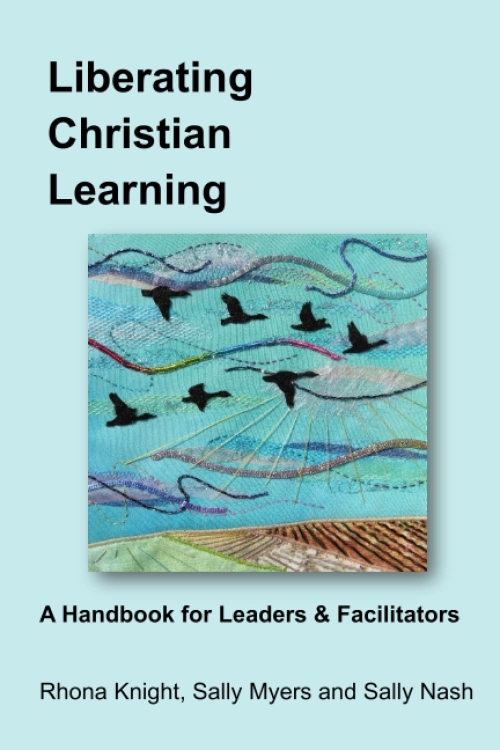Liberating Christian Learning, by Rhona Knight, Sally Myers, and Sally Nash
'Learning is at the heart of our missional and discipleship work - this is a great resource book to help us think about how best to facilitate these wonderful opportunities for learning'
 Liberating Christian Learning: A Handbook for Leaders and Facilitators
Liberating Christian Learning: A Handbook for Leaders and Facilitators
By Rhona Knight, Sally Myers, and Sally Nash
Independently published
ISBN: 979-8375358994
Reviewed by Linda Hopkins
This is a great resource book, reflecting the many years of experience each of the authors have as educators and in ministry roles as they share their knowledge and toolkits. It is a book about learning and learners within the church context, written in a very accessible and easy to read way, and full of resources to draw upon.
We are engaged in helping people to learn in so many ways as church – when we run Alpha courses, Lent groups, baptismal classes, parenting courses, house groups and Bible studies, provide one to one mentoring, and so much more. Learning is at the heart of our missional and discipleship work. Yet do we really think about how we are facilitating these wonderful opportunities for learning, and consider how we might do things better, or how we might equip new people to facilitate learning opportunities?
Liberating Christian Learning guides the reader to understand the power and positivity of learning and assists in addressing the above questions. It does this by introducing us to theories of learning in a bite-size way, helping us to consider how to facilitate learning well. The book explores the different ways people learn, and different styles of teaching. There is a chapter on Jesus the creative teacher, as well as chapters on working with groups and individuals.
There are chapters which helpfully show us the things we need to be aware of when facilitating learning (such as risk assessments and reflecting on sessions to understand how they went, and what we might improve). There are reflective questions in each chapter to encourage us to relate the topic explored to our own practice, and there is a chapter devoted to theological reflection. There are plenty of scenarios to aid understanding and application, with links for further reading and exploration should you want to delve deeper on some of the aspects the authors explore, plus appendices of further resources.
Facilitating learning will not be the task of all of us, and the authors ask us to reflect on whether we are called to this task, as well as reminding us to bring prayer into the heart of our role in leading people in learning. I would recommend this handbook to those who are leaders, facilitators of groups, and anyone interested in facilitating learning opportunities in churches. It is a book to read and to return to, and it will support you as you help others to learn.
Linda Hopkins is a Baptist minister and theological educator
Baptist Times, 26/05/2023